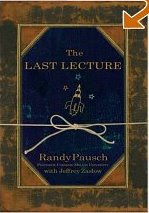
Playing devil’s advocate in a work of fiction is a luxury because you can allow your characters to assume all kinds of biases. This luxury is also a double-edged sword because there’s always the risk of the writer’s personal bias to sneak inside. I kept that in mind when I read Panda Bear M.D.’s blog about integrative medicine. Reading his words, I thrust my arm in the air and yelled, “Yes! I so got the part of my character right.” I was thrilled. I’d nailed the arguments against integrative medicine perfectly. I wanted a controversial and substantive plot and couldn’t have chosen a better subject than integrative modality’s advance into allopathic medicine.
But then I lowered my arm and sobered up. Panda’s words cut into me like a knife, and I felt like he was calling me a fraud and nutjob. I’ll accept that I may be a nutjob, but I won’t accept that I’m a fraud. I respect the hell out of Panda’s vast intelligence, his writing skills, and his thorough treatment of every subject he discusses. Reading his blog is one of the highlights of my day. I’m not upset that he hates integrative medicine –that’s his right, and I’d never try to dissuade him or anyone else.
My sorrow stems from the fact that he refuses to entertain the notion that integrative care could have some validity, and he lumps virtually all integrative approaches into the same basket – which I’ll also grant is his right. But is it correct to do so? Are all forms of integrative medicine bad or are some modalities actually good? Many docs’ opinions are that none of these types of healers make a difference and therein lies what I see as a gaping hole in medicine. Is there no wiggle room to be had?
I know my fictional character of Erik Behler offered zero wiggle room in his views and took every opportunity to ridicule integrative medicine into the ground. His lack of respect was something I needed (and knew existed) to maintain balance in my story about two passionate docs who have vastly differing opinions about medicine.
My own beliefs are that anything leaning too far to any particular side excludes potentially important and legitimate arguments. How can medicine deal in absolutes when we don’t have all the answers? Should we blithely agree that docs and scientists have a totalitarian view with respect to healing and no one else is allowed a viable opinion? And if so, who decides what’s viable? Do docs really have all the unimpeachable answers on how and why the body heals? Are we convinced beyond the shadow of a doubt that the mind plays no role whatsoever in healing? If not, how do we know this? Just because we can’t measure it doesn’t mean it doesn’t exist. If that’s the case, how does this compare to what cardiologists have been saying for years – stress kills. Is that not a mind/body connection?
And what of those cases when medicine loses the fight and the patient should have died, was supposed to die, and didn’t? One of my doc friends calls those BTFOOM cases (Beats The Fuck Out Of Me). Is it fair to assume that there are no other factors other than medicine at play in terms of healing? A few of my doc friends admit that a patient’s strong family ties or that inexplicable will to live help supersede death’s best efforts – they simply didn’t have the answers. They agreed that there are times when remission happens and isn’t because of anything they’ve done. Cardiovascular surgeon, Dr. Mehmet Oz, wrote Healing From the Heart , and it talks about these enigmatic aspects of healing.
Most scientists’ derision about integrative care is that it can’t be tested under a microscope, and they’re right. Is it unreasonable to require this? After all, medicine has these standards, so why shouldn’t integrative medicine shoulder the same burden? My answer is that you’re dealing with something intangible, like love. The only way to quantify its benefits (or lack thereof) is in patient results. But because it can’t be measured, does this make the treatment any the less potent or practical? Does this mean the possibility of healing through holistics doesn’t exist? It’s like being patriotic. You can’t do a CAT scan and say, “Yep, there it is, unequivocal proof that patriotism exists…it’s right next to the diaphragm.” There are some things we accept on faith because enough people experience the feeling. It’s part of our paradigm. But what if the paradigm needs to be updated to ponder and possibly accept previously ridiculed ideas?
I can’t argue on the same level with Panda because he’s a scientist and I’m a writer. Sure, I’ve done a ton of research and, in fact, came into researching integrative medicine with anything but an open mind. My skepticism was the fulcrum to both sides of the integrative seesaw. It was never my goal to write an agenda story, but to present two compelling arguments and allow the reader to make up their own minds. That I wrapped the whole thing up inside two appealing characters was icing on the cake. I sought out the most strange, weird ass integrative modality I could find, and this led me to Reiki – I can see Panda rolling his eyes now – and I came out so impressed with it that I ended up studying it into Mastership.
After a few Reiki sessions (if I was going to write about it, I had to experience it), I found that I couldn’t tolerate my medications. This was like flipping a light switch. Within a month of those sessions, I was off my meds. Blood tests proved that I was fine. Seven years later, I’m still fine and off meds.
My doc’s reaction? “BTFOOM.”
Docs ask for proof, as they wisely should. I have none to offer other than I’m healthier than I was before and am off all meds. In fact, I have nothing of persuasive value other than I feel better than I’ve ever felt before. If I get sick, the first place I go is my doc. I’d never give up going to doctors. If I needed surgery, I’d have it. My beliefs are that of true integration. I think it’s important for patients to have a participatory hand in their healing.
So many times people get really sick and they’re whisked off to chemo or radiation. The docs are busy concentrating on the tumor. But who’s concentrating on the patient? Patients need to have a participatory role regarding their convalescence, and this is where integrative medicine comes into play. Have the chemo, the radiation. But also have the Reiki, hypnotherapy, biofeedback or green tea. In order to have a healthy body you have to have a healthy mind. I’d like to think that given these parameters, even Panda could find some wiggle room.
I’m not trying to change anyone’s mind. My sole intent is to offer what I hope is a balanced response to a controversial issue.








6 comments:
"I can’t argue on the same level with Panda because he’s a scientist and I’m a writer."
Maybe not but you can argue on a more informed level because, unlike many physicians, you agree to experience versus shutting your eyes to things you can't understand.
I'm about ready to pay for a trip to the jungle for PandaBear so he can get enlightened!
And is "medicine" a science? Some think not...it just employs the sciences...some of which are way behind the "modern sciences."
I respect the hell out of Panda, and I don't begrudge him or anyone their opinions. They do raise valid questions, and I think it's only right that these questions be asked in the interest of practicing good, safe medicine.
Where I part company with Panda and others is when they lump all alternatives into one basket and dismiss EVERYTHING as a crock. That's like saying that all politicians are horrible. We know that's not the case and there are some politicans who genuinely care.
I think it's wrong to make sweeping statements and generalities under the guise of being an M.D. because they assume their opinions are the final word. If no one else is allowed to voice an opposing viewpoint then how does a healthy dialog ever take place among fellow docs whose views differ?
This, to me, is akin to the ostrich sticking his head in the sand.
in my setting i have a lot to do with our alternative colleagues' work. many of my blogs deal with them. here they are called sangomas. my respect for them can not get lower. i am considering posting a few more entries (there are already many) about their kills.
You're entitled to your opinions, bongi, and I think they're well-earned. There's a big diffence between sangomas and shaman and the integrative healers here in the US.
When I was in the Peruvian Amazon, I saw how the villagers revered their shaman, and this was fine. It's a part of their belief system and for the most part, they did just fine in dealing with their superstions such as soul sickness, looking at a pink dolphin while pregnant, etc. But does anyone think they can cure cancer or a ruptured spleen? I think not.
lynn, the sangoma is the local word for what you refer to as shaman. there is no difference at all. where i come from, the locals revere the sangoma as those people you talk about revere the shaman. same thing. different continent. unlike panda i don't revert to science in my arguement (although i am a scientist too so my mind tends that way). i only need to refer to the many many examples i have seen with my own eyes of how they kill. and they get away with it because of some belief clause.
i really need to post about this some time (i don't know when though. must still put thoughts together). it is quite complex. my feeling for them overflows to certain western doctors too. it's something along the lines of not knowing your limitations and still taking innocent people's money for the promise of a cure. when the patient actually is killed (this happens often) how can that be excused just because the people believe in their shaman/sangoma.
Post a Comment